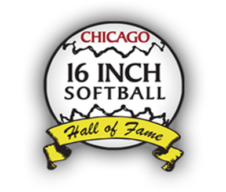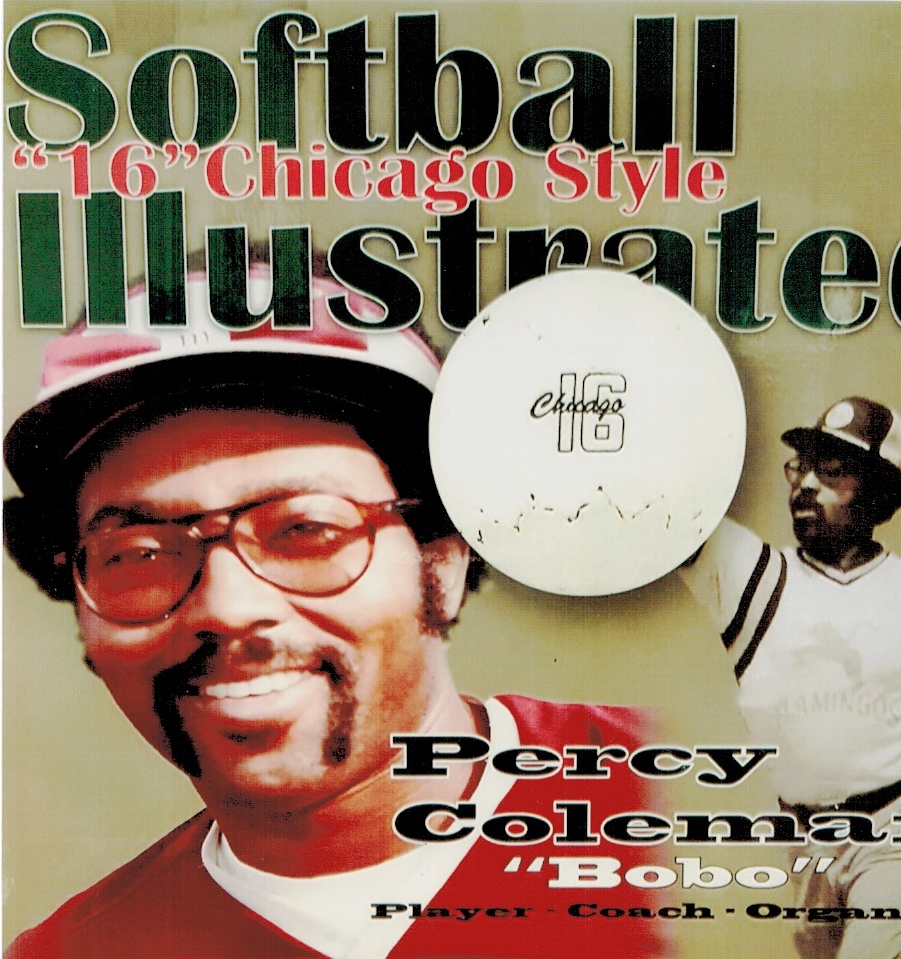Percy V. Coleman began his softball career with the Flamingos in 1964 when he was twenty-three years old. His competitive spirit and love of softball and basketball drove him to play these sports at top levels. Percy turned this passion into a championship basketball career at Crane Junior College and Chicago State University where he was an outstanding “high scoring point guard”. He was named a Little College All-American for three years. Chicago State became a credited university and Percy earned his bachelor’s and master’s degrees.
As an outfielder and pitcher for the Flamingos, Percy and superstar Billy Johnson partnered to be co – business managers and coaches of the Flamingos around 1970. Their partnership turned the Flamingos into one of the top black softball teams in local leagues and at Major ASA and USSSA tournaments.
Percy “BoBo” Coleman has been called one of the greatest black pitchers, players, and managers in sixteen-inch softball. Since early-1975, the Flamingos were the most successful teams on Chicago’s South and West sides since the Brown Bombers of the 1950s. Many former players say that Percy was the most analytical pitcher in softball during his playing days and a real community leader on and off the field. His talents were honed by watching and learning from Tom Bonen (HOF), Ed Zolna (HOF) and his idol, Mike Tallo (HOF). His prolific background and winning records and shutouts in major competition are too numerous to be mentioned.
Percy is also recognized and respected as the Chicago Housing Authority Commander of Community Policing. He used his experience in softball and midnight basketball leagues as proactive tools for youth and adults at risk. These programs were designed to help stop and eliminate the harmful effects of drug, gun, gang, and police violence in the black community. He was the guiding light behind the creation of the Chicago Major Sports Association, an institution that brought South and West side teams and business leaders together. He also helped put all the black local leagues under one umbrella with rules and regulations that could be realistically enforced. Percy also brought major sponsors and radio and newspaper editors from the Chicago Defender to the table when he became a sports writer for the Inner City Leagues.
With this media coverage, sponsors for Budweiser, Old-Style, Pabst, and R.J. Reynolds supported the Chicago Major Sports League and the Chicago Board of Education for over fifteen years. He was also instrumental in bringing sixteen-inch softball to Chicago Public Schools as a high school sport.
Percy’s outreach to other managers (and with the clout of the Flamingos) soon had black and white teams coming to the South and West sides for league and tournament play. This competition showed the softball world that teams other than the Flamingos and the Senators could play top-level softball. Percy and his “best dressed” Flamingos started the first Black World Series at Harvey’s Lou Boudreau Stadium. Over forty teams played in this series.
He also helped organize (along with Chicago’s Mayor Washington) the only Black Softball Tournament held at Comiskey Park on August 8, 1983.
Percy and the Flamingos have appeared in numerous national tournaments where they claimed numerous championships. Percy was the lead pitcher and was a consistent clutch hitter. He was named an M.V.P. for these efforts. They are the only black team to defeat Ed Zolna’s Bobcats in the Bridgeview “Pro” League State Championship game. In 1974, they received top-ten ranking in the finals rankings by Windy City Softball Magazine.
Additionally, he is credited with discovering, developing, and introducing some of the games’ top black players to Major ASA, USSSA, and CMSA tournaments. Percy has many accomplishments as a player and manager. He is also respected as a police commander, pitcher, manager, and administrator for the Chicago Housing Authority’s youth and adult leagues.
Percy and his wife, Lena, have three adult children – Jackie, Jeffrey, and Philip Coleman and Percy’s favorite and only granddaughter, Ms. Lauren Coleman, a senior at Dillard University They have lived on the South side of Chicago for over fifty years.

